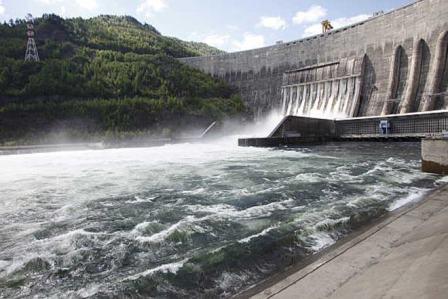


ArmInfo. The Centre is planning to create a hydro-development fund to give a push to stalled hydro projects facing cost overruns owing to delays.
The Centre is planning to create a hydro-development fund to give a push to stalled hydro projects facing cost overruns owing to delays. While the Cabinet Committee on Economic Affairs (CCEA) was deliberating over the fund size, sources in the Central Electricity Authority (CEA) said the fund size could be Rs 16,000 crore, with Rs 10,000 crore drawn from the National Clean Energy Fund (NCEF). The rest is likely to be sourced from the Power System Development Fund (PSDF).
The fund is likely to be created in another two-three months following which all central, state and private-sector hydro projects will be brought under the renewable category. “Bringing hydro-generation units under the renewable category would mean extending all incentives to the hydro-power projects, which the renewable projects are entitled to,” KK Arya, member hydro, CEA, said on the sidelines of a CII energy conclave.
The incentives would include benefits of interest subvention and mandatory hydro-power purchase by state discoms, which in a way would provide financial support and create a market for hydro-power generators, Arya said.
Though the benefits of the incentive will be extended to all existing and stalled hydro-power projects, the hydro fund will be utilised for stalled hydro power projects only.
Currently, hydro projects aggregating more than 13,000 MW are stalled.
Hydro generation will be crucial in supporting variability and intermittency of solar generation. It was important in supporting the target of generating 175 GW by 2022, Arya said.
Bharat Heavy Electricals (BHEL) director Amitabh Mathur said BHEL is trying to create a non-thermal power generating equipment portfolio of 40% from the current 20% of its total product mix, eyeing the increasing renewable market. This will not only be the field of solar and wind power generation, but include nuclear generation as well as making equipment, which will power other agents like transport.
According to West Bengal State Electricity Regulatory Commission chairman Rabindranath Sen, Kolkata will very soon have electric buses plying on the roads as it would be in other cities and towns of the country. By 2030, most of the nations have targeted to abandon fossil fuel vehicles, Sen said.